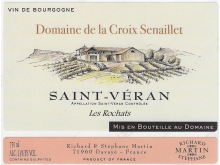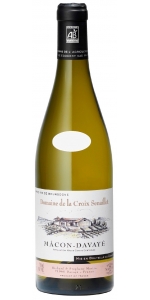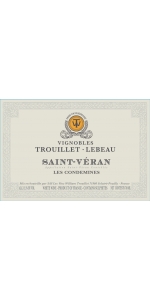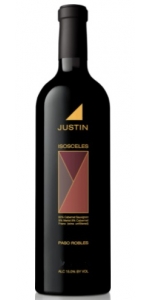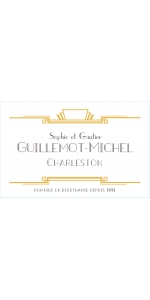Croix Senaillet St. Veran Les Rochats 2021
6 bottles with free shipping for: $240.00
12 bottles with free shipping for: $396.00
| BUY MORE! SAVE MORE! | ||||||||||||||||||||
|
| Country: | France |
| Regions: | Burgundy Maconnais |
| Winery: | Croix Senaillet |
| Grape Type: | Chardonnay |
| Organic: | Yes |
| Vintage: | 2021 |
| Bottle Size: | 750 ml |
Croix Senaillet St. Veran Les Rochats is made from 100 percent Chardonnay.
This Saint Veran Les Rochats is produced from 50-year-old Chardonnay vines, grown organically on Jurassic-era limestone (Entroque limestone), covered by pebbles that act as a filtering soil. The parcel is southeast facing on half hills.
Clear golden color with light green reflections. The wine has a rich and complex bouquet with a wide array of aromas: pear, nougat, wild peach and kiwi. The mouth is rich and dense bringing freshness with a nice volume and finishing on a light exotic note.
Vineyard
Surface area : 1 Ha.
Soil : limestone soil from the Jurassic period, covered by pebbles acting like a filtering soil.
South-east facing parcel on half-hills.
Grape variety : organically-grown Chardonnay.
Plantation density : 8.500 vinestocks per ha.
Age of vines : 50 years.
Mâconnais style pruning quite short, with 10 to 12 buds.
Hand-harvesting at optimal maturity.
Destemming to avoid herbaceous taste.
Slow and gentle pneumatic pressuring guarantees purity of juice and extraction of the finest aromas.
Very slow alcoholic fermentation in stainless still tank.
Malolactic fermentation.
Aging in stainless steel tanks for 9 months with gentle stirring of fine lees.
Pairs well with shrimp risotto, sautéed veal with eggplant.
The Domaine de la Croix Senaillet Estate
This second generation old estate is located in the town of Davaye, in southern Burgundy. The winery was founded by Maurice Martin in 1969. His son Richard took it over in 1990 and was joined by his brother Stéphane in 1992. While Richard takes care of the vinification and the sales, Stephane is in charge of the vineyard. They sell 80% of their production in bottle and 20% to negociants. Currently, they export 40% of their wine outside of France.
"Domaine de la Croix Senaillet" takes its name from a cross that had been given by an ancient mayor of the village called Benoit Senaillet. The records show that the mayor donated the cross to Davaye in 1866 to replace the one that was destroyed in 1793 during the French Revolution. According to the common believes, the cross that was blessed in 1867 would protect the inhabitants of the village and everyone that would pass by.
The Domaine de la Croix Senaillet Vineyard
The vineyards are located on the south/southeastern slopes of the Solutre and Vergisson rocks. The estate spreads over 52 parcels in the town of Davayé and measures 22 hectares total (54.3 acres): 17 ha in St Veran, 5 ha in Macon, less than 1 hectare in Pouilly-Fuisse. The soil is both chalk and clay. The vines are 40 years old on average. In order to increase the quality of the grapes, Stephane has decided to use "culture raisonnee", which means that they watch carefully and daily the vineplant, checking for the sanitary level in the vineyard and use very small amount of pesticide and chemical products if necessary.
Saint Veran's AOC represents 696 hectares (1,726 acres) in total.
The total production for the AOC is around 42,775 hectoliters (474,089 twelve-bottle-case equivalent)
All older vintage wines have been purchased from a single collectors cellar. Pictures can be requested before shipment.
Croix Senaillet Macon-Davaye is 100 percent Chardonnay.
Pale brilliant yellow color. Fresh nose of citrus fruits (lemon, grapefruit). Mineral and salty notes on the palate. Fresh, supple and harmonious in the mouth.
Produced from 7 different parcels of vines spread over 3.77 hectares, planted on clay and limestone based soils. Average age of the vine is 28 years. Careful vinification. Minimal intervention in the vinification process. Modern equipment (pneumatic press, thermo-regulated tanks). Each parcel is harvested at full maturity. Destemming, slow press, slow fermentation, malolactic fermentation, aging on the lees.
Excellent as an aperitif and pairs well with grilled fish and Asian food.
All older vintage wines have been purchased from a single collectors cellar. Pictures can be requested before shipment.
Trouillet Lebeau St. Veran Les Condemines is made from 100 percent Chardonnay.
The wine comes from 70-year-old vines that are ideally located on a south-facing slope in the village of Leynes, on a clay-limestone terroir. Aged 100% in Burgundy barrels, offering a fruity, powerful and charming wine. Beautiful expressive aromas of ripe yellow fruits. Rich, generous, full, crisp and well-balanced on the palate.
Justin Isosceles Proprietary Red Paso Robles is made from 86% cabernet sauvignon, 7% cabernet franc and 7% merlot.
Bright with a dark purple/black core and a lighter ruby purple rim showing slowforming, moderately stained tears on the glass. Attractively aromatic and complex with ripe black and red cherry, black currant, new book leather, cedar, tobacco, vanilla bean, licorice, and oak. Full-bodied on the palate with ripe complex cherry, cassis, and a subtle red berry fruit on entry, with vanilla and licorice baking spice leading into the midpalate, which shows complex savory notes of cedar, tobacco leaf, and leather. The very long, complex, and continually changing finish is a progression of sustained ripe cherry fruit accented by baking spice and oak notes, with smooth chewy tannins and balanced acidity, adding depth and freshness.
In 1987, we made our first vintage of a wine styled after the famous First Growth producers of Bordeaux, created with the same uncompromising care as the Grands Vins of those venerable chateaux. Full-bodied with ripe black fruit and complex baking spice, this wine is amazingly ready to drink right out of the gate, and you can try a bottle or two now—but make sure to save a few to enjoy this wine as it continues to evolve after some time in the cellar.
Review:
A concentrated and rich nose with aromas of blood plums, mocha, prunes and baking spices. The plate is full-bodied with firm tannins and long, lingering notes of blackberry compote, roasted meat, graphite and citrus rind. Made from a blend of 86% cabernet sauvignon, 7% cabernet franc and 7% merlot. It needs time in bottle for the tannins to soften.
-James Suckling: 93 Points
Intense aromas of black plum, crushed elderberry, violet, smoked meat and turned earth make for a cohesive nose on this legendary blend of 86% Cabernet Sauvignon, 7% Cabernet Franc and 7% Merlot. Firm, expertly integrated tannins frame the palate's lively and rich flavors of strawberry, dried herb and pepper
-Wine Enthusiast: 93 Points
Guillemot-Michel Vire-Clesse Charleston is made from 100 percent Chardonnay.
This cuvée is produced from hundred-year old vines that the great-grandfather planted after he returned from World War I. The family wanted to honor his memory and vinify these vines the same way he did, in old demi-muids.
Charleston is a deep and complex wine that gently express itself in the glass, offering juicy white fruit flavors and a lengthy finish.
Charleston is vinified and aged for one year in demi-muids of over 10 years old. During the following harvest, the wine is racked and placed in vats for another 6 months of aging before bottling.
Fish in white sauce, poultry in creamy sauce, hard cheeses.
- back
This wine is characterized by grace and elegance. The bouquet is full and ethereal of ripe fruit and cherries in alcohol accompanied by typical nuances of the Mediterranean scrub such as lavender, thyme and wild mint. On the palate it has a very large and sweet opening. The silky tannin spreads a dense texture accompanied by a warm and lively body where notes of fresh coconut and sweet spices such as cinnamon persist.
The yellow area highlighted on the label indicates where precisely the grapes came from for this vintage.
Review:
-James Suckling 94 Points
Clos Saint-Jean is a 41-hectare estate in Châteauneuf-du-Pape run by brothers Vincent and Pascal Maurel. Considered by many critics and wine-writers as the preeminent estate espousing the modern style of winemaking in Châteauneuf, this cellar is one of the oldest in the region, having been founded in 1900 by the greatgreat-grandfather of Vincent and Pascal, Edmund Tacussel. A short time after its founding and well before the AOP of Chateauneuf-du-Pape was created in 1923, Edmund began bottling estate wines in 1910.
The farming at Clos Saint-Jean is fully sustainable due to the warm and dry climate, which prevents the need for chemical inputs. Instead, Vincent and Pascal employ organic methods for pest control, mainly pheromones, to prevent pests from taking up residence in their vines, a process called amusingly enough in French, confusion sexuelle. The vines tended manually, and harvest is conducted in several passes entirely by hand.
Deus ex Machina is a literary and dramatic term for a miraculous intervention that interrupts a logical course of events in a plot or play. A suitable name for a cuvée that had it’s start in the torrid vintage of 2003 when Philippe Cambie and Vincent Maurel made the decision to harvest at the end of September, weeks after their neighbors. Deus ex Machina is a blend of old vine Grenache from La Crau, aged in tank with equally ancient Mourvedre from the sandy soils of BoisDauphin aged in demi-muid. Deus ex Machina is only made in the best vintages.
Review:
Lastly, the 2022 Châteauneuf Du Pape Deus-Ex Machina shows a similar profile to the Combes des Fous, yet it brings another level of tannins and concentration. Kirsch liqueur, white flowers, sandalwood, cured meats, and graphite notes all shine here, and it's full-bodied, has a deep, layered, powerful, yet weightless profile, lots of ripe tannins, and a blockbuster of a finish. This ripe, sexy, seamless, incredibly impressive beauty will compete with anything in the vintage. As usual, this cuvée is 60% Grenache and 40% Mourvedre, which is brought up in roughly 40% new demi-muids.
Review: Jeb Dunnuck 97 Points

